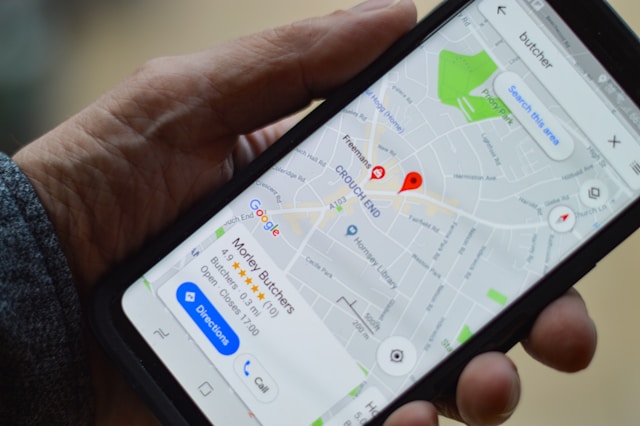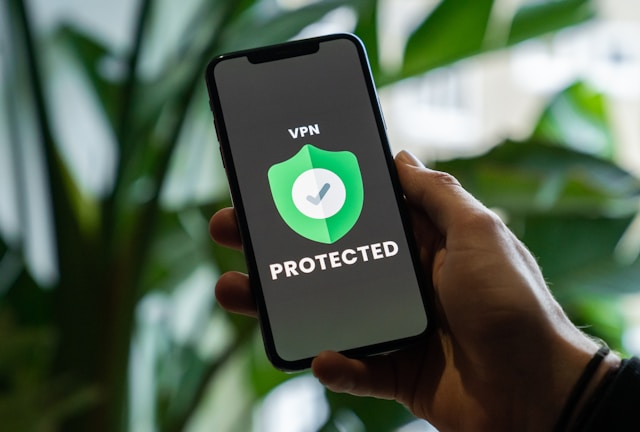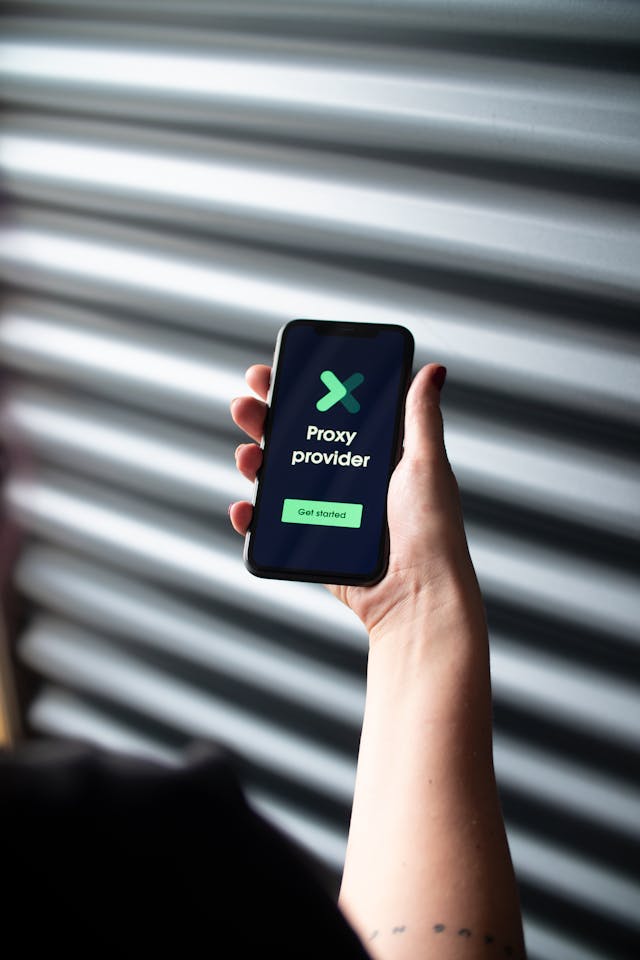You can use IP blocking to increase website protection from various security problems. This includes hackers, unwanted traffic, spam, and more. Therefore, you can enjoy website success and take security matters into your own hands.
In this article, we’ll share the different benefits of blocking the IP addresses of internet users from accessing your website. Even if you plan on getting a webmaster to handle these tasks, it’s a good idea to understand them.
Therefore, you can learn about the potential threats and how people working for your website can tackle them. Read on to learn everything you need to know!

Table of Contents
Top 5 Benefits of Using an IP Blocker for Your Website
Now, let’s explore the top five reasons you may want to use an IP blocker for your website. You’ll see several advantages, and it’s worthwhile practice. This is important information for website owners who want to protect their digital assets.
1. Enhanced Security
Taking advantage of IP address blocking allows you to prevent malicious activity such as hacking events.
That’s because you can identify and block IP addresses associated with hacking attempts. This helps protect your website from various types of cyberattacks, such as brute force attacks, DDoS attacks, and SQL injections.
Ideally, you can block IP addresses when you detect suspicious activity. Early detection and action can help minimize the severity of attacks. Therefore, investing in security protocols that provide these features makes sense.
2. Reduce Spam
Block IP address to remove traffic from known spammers. This can reduce spam submissions in comments, contact forms, and user-generated content. Therefore, you can keep your site clean and user-friendly.
Additionally, blocking malicious IP addresses on email servers can reduce the number of spam and phishing emails. This helps protect your users and network from malicious content. However, some spam emails inevitably get through, and ideally, they will land in the junk folder.
3. Traffic Management
You can improve website performance by getting rid of spam traffic. After all, spam can eat up a lot of website bandwidth, which slows down loading speeds for all users. Hence, users can enjoy a better experience.
Additionally, you’ll save money since your website will use less bandwidth. The savings can be massive, depending on the deal you have with the website hosting company.

4. Use Geoblocking
You can prevent users from accessing your website from specific regions of the world. This applies to e-commerce websites that only sell products in particular countries. Geoblocking helps prevent bandwidth use from users who you cannot monetize.
The practice is also useful for complying with local laws and regulations. Therefore, your website will not have problems with the law when participating in commercial activities.
5. Fraud Preventions
Blocking a range of addresses associated with fraudulent activities or chargebacks can protect your e-commerce site from financial loss. You can eliminate users who try to game the system by abusing payment processor chargeback options.
You can also block IP addresses that attempt unauthorized access to user accounts. This will help improve the overall security of your internet servers. However, you need a system to catch these questionable IP addresses early.
Does a VPN Block IP Addresses for Websites?
No, a VPN doesn’t block IP addresses for websites. Instead, regular internet users can use VPNs to receive new IP addresses and access content with geo-restrictions.
This is relevant for website owners because they can receive traffic from unwanted countries. This is important to remember when wondering does a VPN block IP addresses.
Websites will need to use other tools to block IP addresses from accessing their content. You can use these to block IP addresses from specific regions, which helps when selling products to specific countries.

Limitations of Using Blocking IP Address for Your Website
There are a few negative aspects of blocking IP addresses that you need to understand before proceeding. For example, you may unintentionally block legitimate website users, which can lead to a loss of customers if you sell products via an e-commerce website.
Additionally, you may place restrictions on users from countries that may want to follow your brand. Hence, you’ll be reducing the reach of your website from an international audience.
Also, blocking IP addresses can lead to the prevention of bots from crawling your website. This will negatively impact your search engine optimization (SEO) efforts. Therefore, you need to carefully adjust the IP address to which you allow access to content on your website. This is especially important when you are taking part in geotargeting marketing.

How To Block IP Addresses
Do you want to learn how to block IP addresses? You can do this in Windows, and we’ll share the step-by-step process:
- Get the website address from the browser’s address bar.
- Open the Command Prompt, which you can do from the start/windows menu.
- You can enter Ping into the first line of code and then type the web address you want to block. You’ll receive several lines of code back, which you can enter into your browser’s address bar.
- Navigate to the Windows Firewall settings and click Advanced Settings.
- You must create a rule by going to Inbound Rules and then New Rule. In the information box, you want to select Custom.
- Add the IP address and click OK.
- Select Block Address and click Finish to complete the process.
5 Alternatives To Blocking IP Addresses for Websites
Do you want to avoid blocking IP addresses where possible? Then, there are several alternatives that you can use, and we’ll share them in this section. Also, you can use these alternatives in addition to IP blocking to increase protection.
Understanding the options available to increase your website’s security is a good idea. Ideally, you will implement every feature and tool to give your website the best chance to succeed.
1. Rate Limiting
Implement rate limiting to control the requests a single IP address can make within a certain period. This can help prevent abuse without completely blocking access. Therefore, legitimate users can continue using your website after the period expires.
You’ll need to judge the parameters for the rate-limiting approach. For example, you must decide how many attempts an IP address can execute. You’ll also need to choose the amount of time.
2. Web Application Firewalls (WAFs)
Use a WAF to filter and monitor HTTP traffic between a web application and the internet. WAFs can detect and block malicious requests based on patterns and rules. However, you must use a good quality firewall with intelligent features.
For example, AI-based firewalls may do a better job of only blocking websites based on specific parameters. Therefore, you can avoid blocking the traffic you want to navigate to your website. Also, it can help avoid blocking search engine bots that want to crawl your website.
3. CAPTCHAs
Employ CAPTCHAs to verify that a user is human and not a bot. Additionally, you can use CAPTCHAs selectively. This includes login pages, comment sections, or during the account creation process.
Also, ensure the CAPTCHAs work correctly and don’t lead to frustration. Some of them use annoying formats that can cause the user to not understand what input to make. Aim to provide a smooth transition while bolstering the security of your website.
4. Behaviour Analysis
You can use systems to monitor the behavior of your website users and detect questionable IP addresses. The system can get rid of anomalies to keep your user base clean.
Also, the system may ask for additional verification steps. This means you can catch bots and spam traffic and avoid blocking legitimate users. That’s because they can easily complete those verification systems. It may lead to a bit of frustration, but the detection system is unlikely to ask for verification from the same users.
5. Throttling
You can gradually reduce the response rate for repeated requests from the same IP address. This can slow down automated attacks without completely blocking legitimate users.
You’ll need to decide on the rate at which throttling occurs when geotargeting users. It’s important to find a middle ground that allows you to avoid slowing down users too much when they make a few mistakes.

IP Blocking: Is It a Worthwhile Practice?
Yes, it’s a good idea to block the IP addresses of websites that you feel do not contribute to the success of your website. Use the techniques in this article to block all questionable IP addresses to keep the website running smoothly.
Also, it’s worth implementing strategies that act as alternatives to IP blocking. These include throttling, behavioral analysis, CAPTCHAs, WAFs, and rate limiting. Mix these strategies to improve overall website security and boost user experiences.
Do you need further help with geo-blocking IP addresses to improve website security? Then, you can turn to geoPlugin, a tool that allows you to track the geographic locations of internet users. Therefore, you can control the users accessing your website based on their location in the world.
So what are you waiting for? Try out Geoplugin today!










